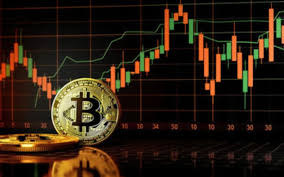Crypto Trading Price Alerts The Ultimate Guide to Staying Ahead in Cryptocurrency Markets

The Importance of Crypto Trading Price Alerts
In the fast-paced world of cryptocurrency trading, one of the most crucial tools for success is the use of Crypto Trading Price Alerts https://www.newsvoir.com/index.php?option=com_content&view=catnews&catid=114&Itemid=37&page=232. As prices fluctuate rapidly, traders need to be informed about significant changes to make timely decisions. Crypto trading price alerts allow traders to monitor various cryptocurrencies and receive updates when certain conditions are met.
What Are Crypto Trading Price Alerts?
Crypto trading price alerts are notifications sent to traders based on set price movements or other specified criteria. These alerts can be delivered via SMS, email, or through mobile applications. They serve a vital purpose by:
- Helping traders track prices in real-time without requiring constant monitoring of the markets.
- Enabling users to set target prices for buying or selling assets.
- Providing alerts for unusual market activity that may indicate profitable trading opportunities.
Benefits of Using Crypto Trading Price Alerts
The benefits of using crypto trading price alerts are manifold:
1. Increased Responsiveness
With price alerts, traders can react quickly to market changes. For instance, if a trader has set a sell alert for Bitcoin at $60,000 and the price reaches that level, they can immediately evaluate their choices and take action.
2. Reduced Emotional Trading
Trading can evoke strong emotions like fear and greed. By relying on price alerts rather than situational impulses, traders can make more rational decisions based on predetermined strategies instead of emotional responses.
3. Better Risk Management
Price alerts can help in managing risk. Traders can set alerts for stop-loss orders, ensuring they don’t incur significant losses if the market moves against them. Timely alerts can protect capital and preserve the ability to trade another day.
4. Convenience and Time-Saving
Monitoring the cryptocurrency market is a time-consuming task. Price alerts save traders hours each day by providing only the essential information needed to make critical trading decisions. Instead of watching the charts continuously, traders can go about their routines and receive notifications only when necessary.
How to Set Up Price Alerts
Setting up price alerts is typically user-friendly and can be completed in a matter of minutes. Here are the general steps to follow:
1. Choose a Trading Platform or App
The first step involves selecting a reliable trading platform or application that offers price alert features. Popular exchanges and trading apps usually have built-in alert systems.
2. Create an Account
Once a platform is selected, users will need to create an account. This process may involve providing personal information, verifying identity, and depositing funds.
3. Navigate to Price Alerts Feature

After setting up an account, users can locate the price alerts feature. Usually, it’s found in the account settings or trading dashboard.
4. Set Desired Alert Criteria
Users can define the specifics of their alerts, such as target prices or price ranges. Some advanced platforms allow traders to set alerts based on technical indicators like Moving Averages or RSI (Relative Strength Index).
5. Choose Notification Method
Before finalizing, traders can select how they wish to be notified—whether by email, SMS, or in-app notifications. Ensuring notifications are set up correctly is essential so that no important updates are missed.
Types of Price Alerts
Different trading strategies may benefit from various types of price alerts:
1. Price Movement Alerts
These alerts trigger when a specified asset reaches a predetermined price. Traders can set alerts to notify them when Bitcoin hits $70,000 or when Ethereum falls below $3,000.
2. Percentage Change Alerts
For those interested in significant market activity, percentage change alerts notify traders when a cryptocurrency price changes by a set percentage—like when a coin increases or decreases by 5% within an hour.
3. Trend Alerts
Trend alerts monitor price movements over a specified period, helping traders capitalize on emerging trends. Alerts could be set to indicate when a coin begins a new upward trend or reverses a downward trend.
Advanced Alert Features
Many trading platforms now incorporate advanced features to enhance trading strategies:
1. Multi-Currency Alerts
Traders managing diverse portfolios can receive alerts for multiple cryptocurrencies at once. This feature simplifies monitoring a variety of assets without constant oversight.
2. News-Triggered Alerts
Some platforms allow traders to set alerts based on significant news events affecting a specific coin. This way, traders can align their alerts with market-moving news.
3. Customizable Alerts Based on Indicators
Advanced traders can also set alerts based on technical indicators like MACD (Moving Average Convergence Divergence) or Bollinger Bands, allowing for a more sophisticated trading approach.
Choosing the Right Platform for Alerts
Not all platforms offer the same price alert features. When selecting a trading platform, consider the following:
- Immediate notification delivery to ensure you can act quickly.
- Multiple alert types to suit your trading style.
- User-friendly interface for easy setup and management of alerts.
- Compatibility with mobile devices for on-the-go trading.
- Integration with other tools like charting software or news aggregators for comprehensive trading capabilities.
Conclusion
In conclusion, Crypto Trading Price Alerts are invaluable tools for traders looking to navigate the cryptocurrency market effectively. By providing timely notifications of price movements, setting alerts can enhance trading strategies, help manage risks, and ultimately improve profitability. As cryptocurrencies continue to gain traction and attract more participants, leveraging price alerts may become essential for traders striving for success in an increasingly competitive landscape. Always remember to choose the right platform that fits your trading needs and strategy for the best possible experience.
